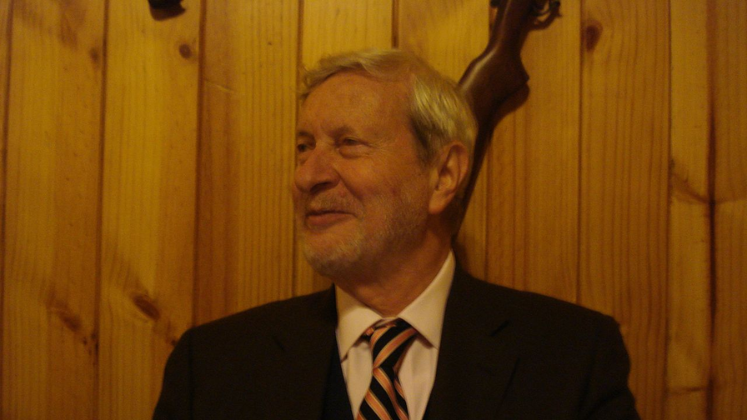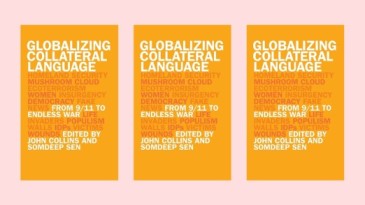Gianni Vattimo, a self-described ‘nihilist, gay, communist, catholic’, passed away this month. Leaving a unique legacy in postmodern philosophy, Thomas Jared Farmer outlines his contributions to the field.

On September 19th an intellectual giant in Italian thought, the philosopher Gianni Vattimo, passed away at the Rivoli Hospital in his native Turin. He was 87 years old. While what follows is not meant as an obituary, Vattimo’s death does present an opportunity to reflect upon his unique contributions to postmodern philosophy as well as recent debates in both politics and religion.
Vattimo was an intriguing figure, who described himself variously as a ‘nihilist’ and as a ‘gay, communist, catholic’. Despite a sometimes-controversial public reputation, Vattimo nevertheless managed to serve two terms as a representative of Italy in the European Parliament and to even maintain an unlikely personal relationship with Pope Francis. He was the recipient of numerous awards and delivered the prestigious Cardinal Mercier Chair Lectures at Leuven (1998) and the Gifford Lectures at the University of Glasgow (2010). He has been awarded numerous honorary degrees, including from the Universities of La Plata, Palermo, Madrid, Havana, and San Marcos of Lima. In 2016, an archive and centre for Vattimo studies was established at Pompeu Fabra University in Barcelona, along with the announcement of plans for future critical editions of his works. In spite of all of this, Vattimo’s work is not presently well-known in the Anglophone world (even among philosophers).
Vattimo first came to prominence as a translator of Hans-Georg Gadamer’s work and as a commentator on the works of Nietzsche and Heidegger. Later, in early-1980s, he developed his own distinctive philosophy termed, pensiero debole (or ‘Weak Thought’). At that time, Italian philosophy was undergoing a kind of “Crisis of Reason”. Debates were raging between a primarily older generation of Neo-Enlightenment scholars—represented by figures like Carlo Augusto Viano—and a primarily younger group of scholars influenced by schools of thought such as existentialism, Marxism, and structuralism. With the import of postmodern ideas, primarily from France, thinkers like Viano lamented the supposed ‘weakening’ of rationalism. As a result, they called for a new Enlightenment. In response, Vattimo argued that the real dangers facing western society were not due to an absence of strong convictions, but rather arose from an embrace of new fundamentalisms (religious, political, and even scientific). In defiance, he termed his own philosophy “weak thought” and advocated for a kind of fallibilism in which even core convictions are held as ultimately negotiable and open to honest dialogue.
If the world is awash in uncertainties, Vattimo reasoned, retreat into various forms of absolutism represent a potential recipe for ideologically-motivated violence. That is, there is never a far leap from the conviction that ‘I know the absolute truth’ to the belief that ‘those who disagree with me are dangerous and must be dealt with one way or another’. For Vattimo, the word ‘weak,’ does not imply ‘feeble’ or ‘deficient’. Instead, it came to represent something more akin to ‘nonrigid’ or ‘flexible,’ capable of adaptation or alteration. Weaving together insights from Heidegger, Nietzsche, and Marx, Weak Thought presents a ‘postmetaphysical’ (that is, ‘anti-foundationalist’) and non-absolutist approach to philosophy, religion, and politics. It would be fair to call this a kind of nihilism (Vattimo himself did), but by this, he simply meant that we can no longer deceive ourselves into thinking that meaning and truth are either stable or eternal. They change over time. This is not to say that ‘truth is whatever a single person decides they want to be the case.’ Instead, truth is more like the provisional result of an ongoing social undertaking. In this regard, Vattimo once said:
“I myself have never known a relativist, just as I have never known anyone who said, ‘All theories, including mine, have equal value.’ I don’t really see relativism as a mistaken theory because it isn’t a theory. If anything, it is a doctrine of society, but in society, for reasons of charity, we have to allow different points of view, and in general I stake out this position: let’s not say that we will reach agreement once we have found the truth. Let’s say we have found the truth when we have reached agreement.”
Vattimo had been deeply enmeshed in left-wing politics since his teenage years. In 1976, Vattimo became a candidate for the Revolutionary Homosexual United Front (Fronte Unitario Omosessuale Rivoluzionario Italiano, or “FUORI!”—the Italian word for, “Out!”), which had aligned itself with the Radical Party (Partito Radicale). Over the years, he would make other unsuccessful attempts at running for public office. In 1999, however, he successfully ran for a seat in the European Parliament representing the Democrats of the Left (Democratici di Sinistra). He was elected to a second term in 2009, this time as a member of the Party of Italian Communists (Partito dei Comunisti Italiani). Vattimo had abandoned his early-Maoism as a result of witnessing the terrorist-led violence of Italy’s ‘Years of Lead’. Even so, he remained committed to a nondoctrinaire Marxism.
Likewise, Vattimo abandoned his childhood Catholic faith as a young man studying in Germany, only to take it up again later in life. His surprising return to Christianity, he acknowledged, was among the most shocking elements of his intellectual journey. Like his commitment to Communism, his attachment to Catholicism was decidedly nondogmatic. This led him to frequent conflict with the hierarchy, particularly over matters of sexuality. Vattimo argued that if Christianity, and thus the Church, is to have a future, however, it must be(come) a non-dogmatic religion of Charity—that is, a faith centered exclusively on an ever-more purified love of God and neighbour, or more specifically, the God that one finds in their poor marginalised neighbor. Jesus, he believed, taught us the model of society, one that abandons ostentatious splendour for the sake of what Frantz Fanon referred to as, “the wretched of the Earth”.
There has been much made in recent years about the so-called “post-truth” moment in which we find ourselves. In this, no small amount of blame has been levelled at postmodernists for supposedly undermining traditional certainties to the point that they have dangerously destabilised cultural norms and values. Criticism of this sort, however, feels a bit like blaming the weatherman for the rain. If people have increasingly lost confidence in old certainties, authors of opaque academic tomes hardly seem the likeliest parties responsible. Instead, like a weatherman, postmodern thinkers such as Vattimo evaluate the atmospheric conditions and provide informed analysis to determine the likelihood and severity of a coming storm. Vattimo, specifically, taught that in times of increased division and conflict, the surest way forward is through dialogue and charity. It is not through buttressing the walls that divide us, but allowing them to become weak enough that perhaps we can begin to see one another.






Interesting read. Thanks, Jared!